Horses as prey animals are instinctively programmed to do the opposite of what predators want. Our biggest challenge is to prove to the horse that even though we look and smell like a predator we really are not. You see, when horses get scared, they don’t think you are going to hurt them. They think you are going to kill them.
Don’t be fooled into thinking that the horse is a domesticated animal because inside every gentle horse is a wild horse, and this is the horse that hurts people and can even kill in self-defense.
Horses have three major instincts: they are perceptive to danger, fly from fear and are gregarious to the herd. If we want our horses to start acting more like partners instead of prey animals then we have to turn their wariness into perceptiveness for our communication, the flight tendencies into impulsion and the gregariousness into bonding with the human.
A Natural Horseman has to learn to think like a horse in order to be able to predict reactions. Understand that the horse usually reacts out of instinct and self-preservation so punishment is out of the question. Their motivation comes out of a desire for comfort and the avoidance of discomfort, so we have to learn how to take away and give back comfort at the right times if we want the horse to respond.
We also have to help our horses become more emotionally fit… a gallon of horse sense for the human and an ounce of people sense for the horse. By gradually exposing your horse to more and more, helping him to live through his (to us) irrational fears is how we’ll develop this fitness.
Most of us are conditioned to stop if we startle or disturb a horse…… “No running, don’t make sudden moves or noises!” This is sound advice if your horse has not been helped to become braver around people because it will help prevent injuries. But a horse that reacts like this is dangerous in the human environment. He is unpredictable to most people, but if you know horses, you’d know it is entirely predictable. You would also know that you have to help him become more mentally and emotionally fit. This is not the job of a trainer; this is your responsibility as your horse’s leader!
Another key that I can give you is to know about the process of desensitization through habituation.
This means that you continue the stimulus that is worrying the horse while he is worried and you quit when he quits. It is such a simple thing to do if you can make sure that you don’t quit while he worries. Horses learn from comfort and discomfort. If you stop the stimulus while he continues to worry and dance around he will think that this is what he is supposed to do.
Think in terms of desensitizing your horse. Prove to him that there is really nothing to worry about and he will quickly learn to trust you on this especially if you remain emotionally calm throughout, and you can allow your horse to drift. This is where your emotions and hands must not get tight. The tighter you hold on and try to stop your horse from moving, the more claustrophobic and distressed he will become.
For example, start jumping up and down in front of your horse and keep on jumping until he stops being scared. If you think this is going to make your horse worse then you don’t understand the psychology of horses! You need to prove to him that he will live through the experience. When he stops, you stop. You’ll be amazed at how quickly your horse will learn to read that you are not threatening him. He’ll start blinking, twitch his ears and lick his lips! This tells you he’s learned something profound that will lead to a change in his behavior.
Horses can read people like a book. Become conscious of your body language, expression and intention so you can teach your horse to read your actions and intentions and to know whether or not he should be worried. A horse needs a leader – calm, controlled, focused. It is up to us to learn how to become this kind of leader for our horse and even more importantly, how to be his teacher. Then we can teach our horse to become our partner.
I want to see the age-old principles of horsemanship come back, not just riding, but a level of savvy that translates into everything we do with horses. This is why I travel so extensively teaching the principles that are so old they are new again, so simple that even adults can do it!
It is my dream to help people have more fun with horses, more safety and achieve more than just mediocre results, to become so good with horses that even their horses think they’re good with horses.

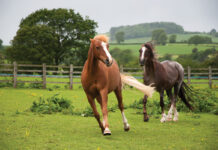
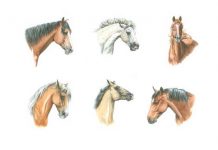
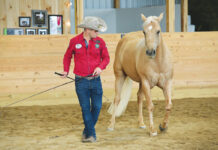

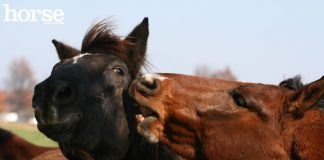
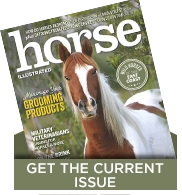
Great article.
I think horses think we humans are like a different species, just what we think of them. They also probaly think we’re lazy cause we’re ridin’ um!!
This website helped with homework assinment a lot! Thanks!
love
good article
Wow….that’s really amazing and interesting. I’m definitely going to try everything I learned in this article with the mare I lease!! Thanks Horsechannel soooo much for putting this up!
wow i didnt know there was such a thing till i got a horse who was trained like this and i have to continue his training. Its really quite amazing.
Amazing. Just amazing. I love Pat’s method and someday hope to try it! Pat is a fantastic horseperson and I hope people against Parelli know in their hearts that what he does is right.
Horses think they are the prey and we are the predators. But, they study us. They watch and observe us as we do them. They think of us as frinds after bonding with them.